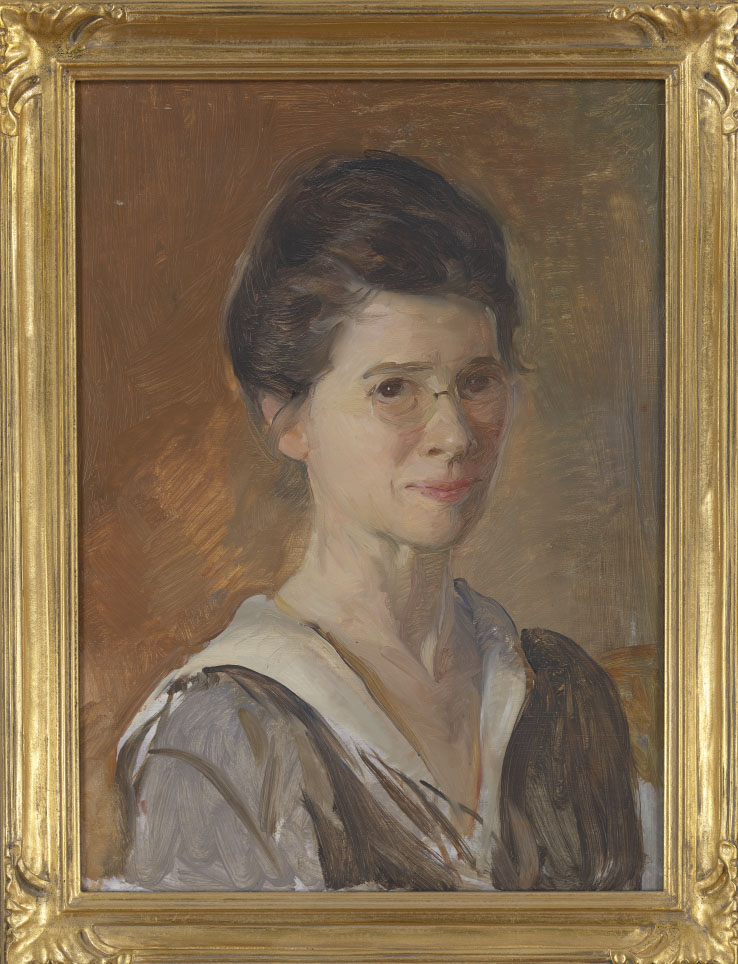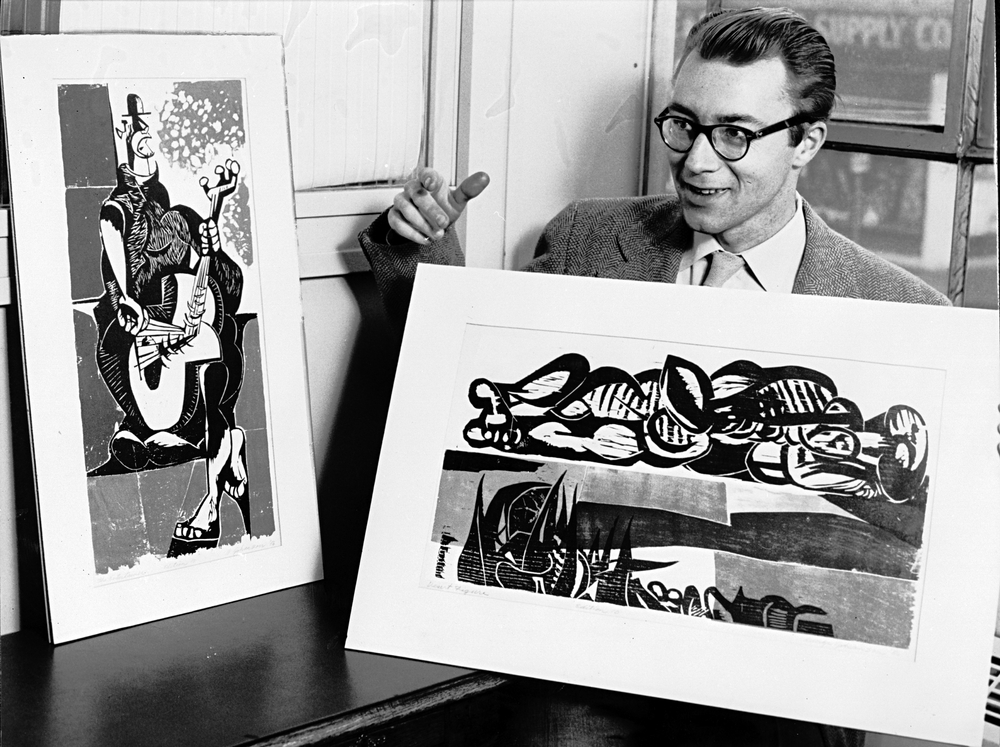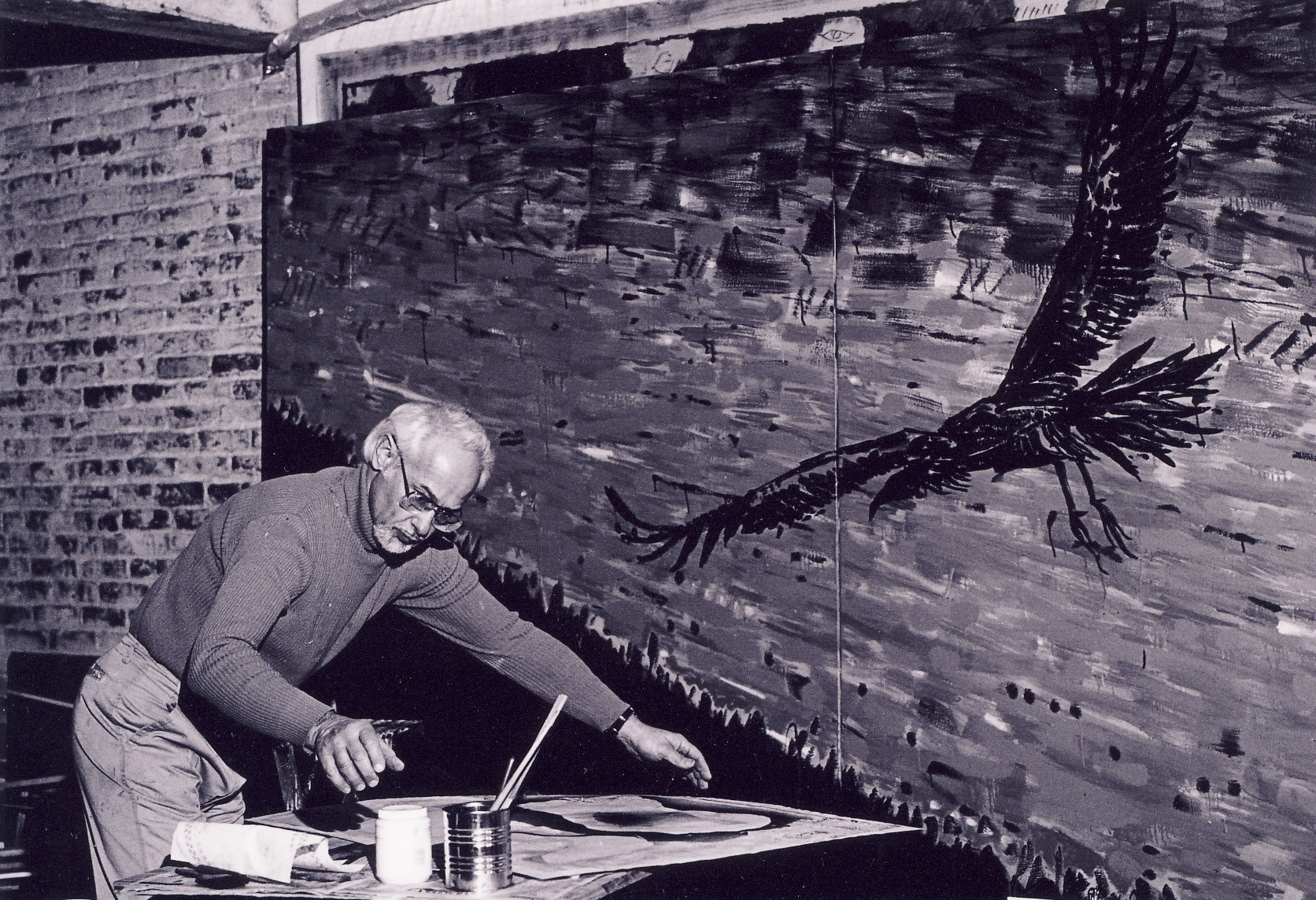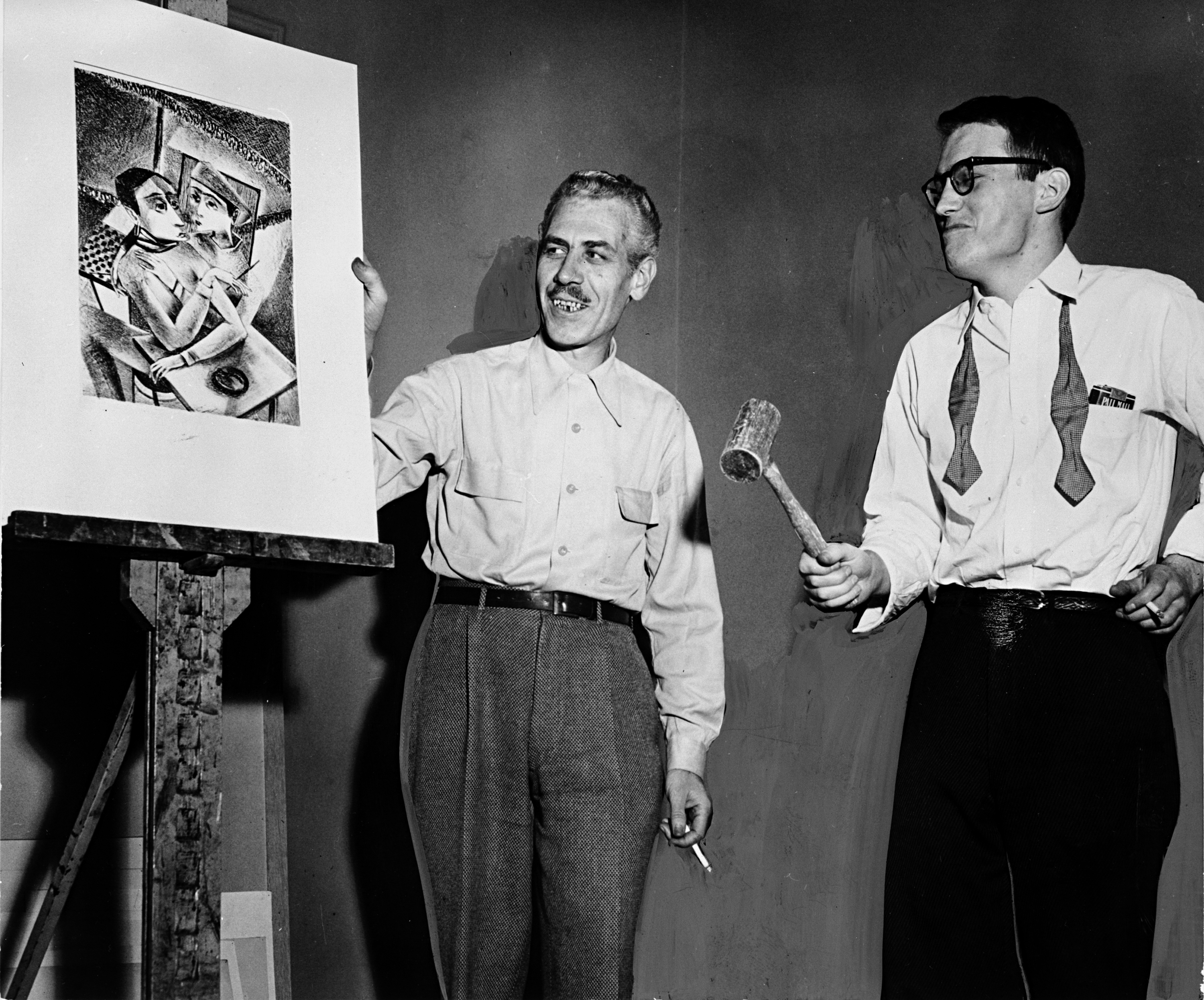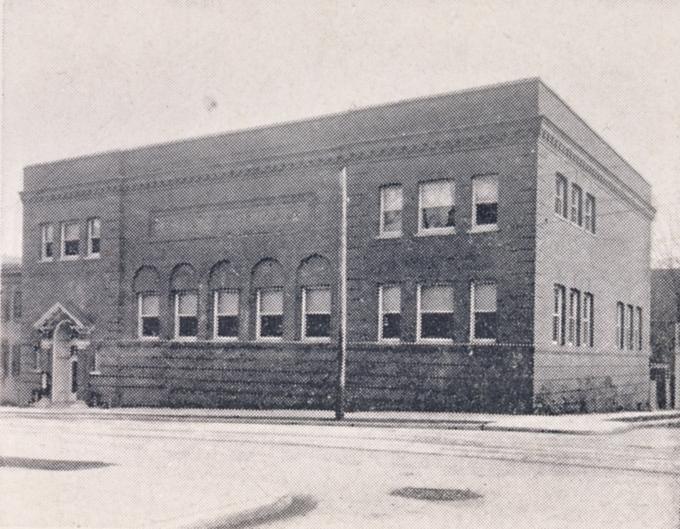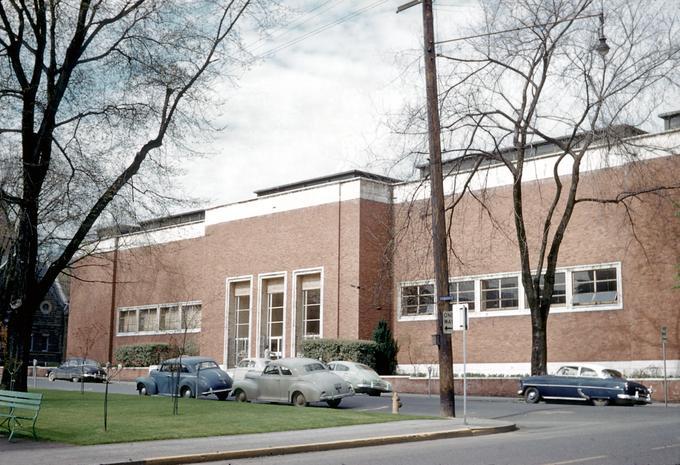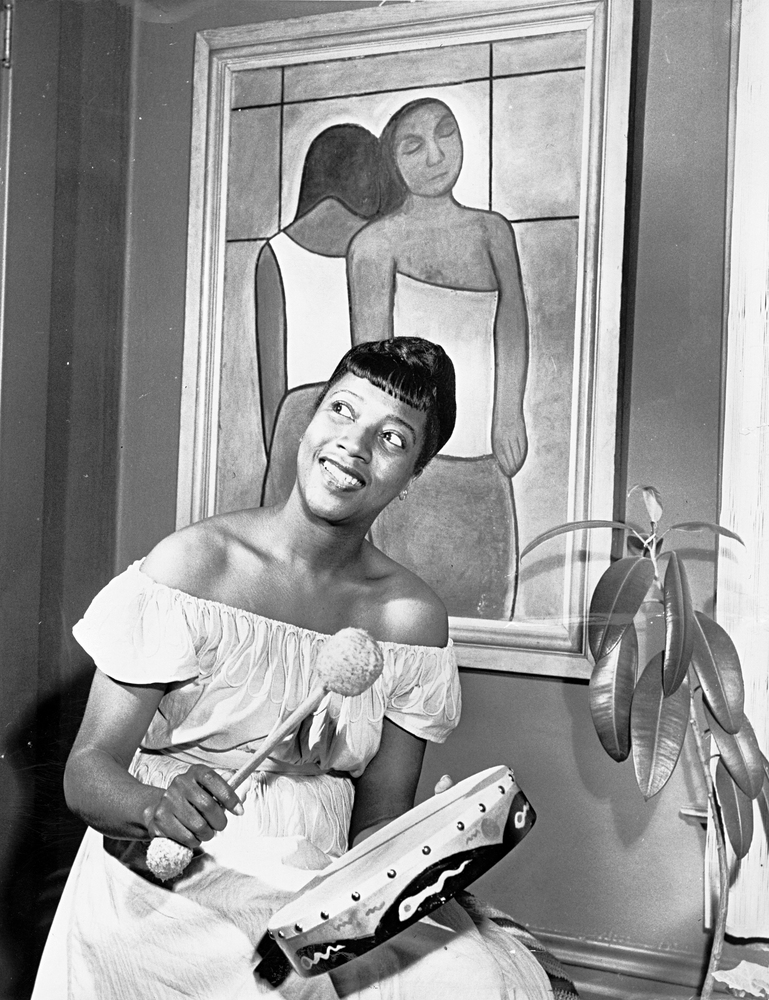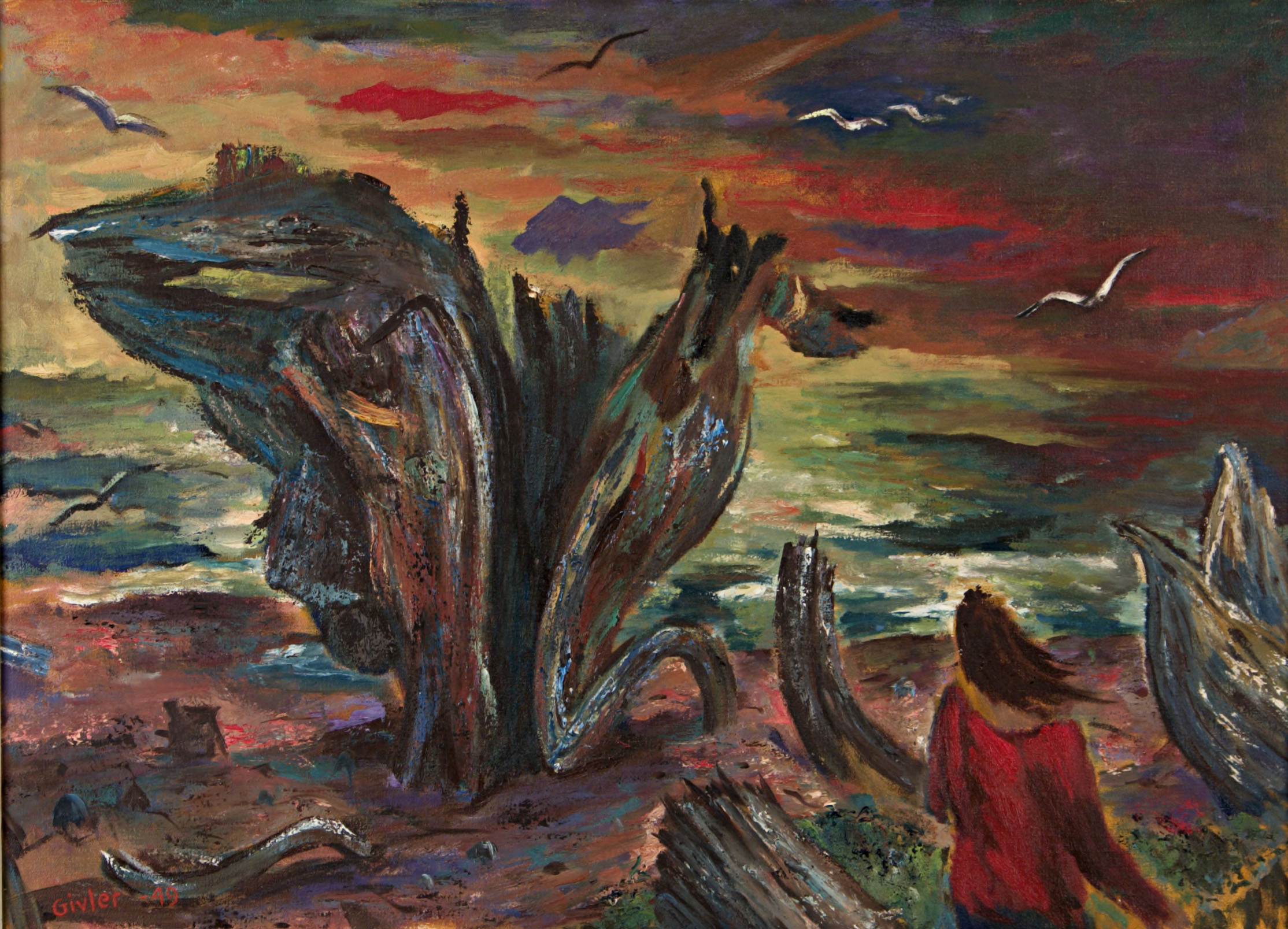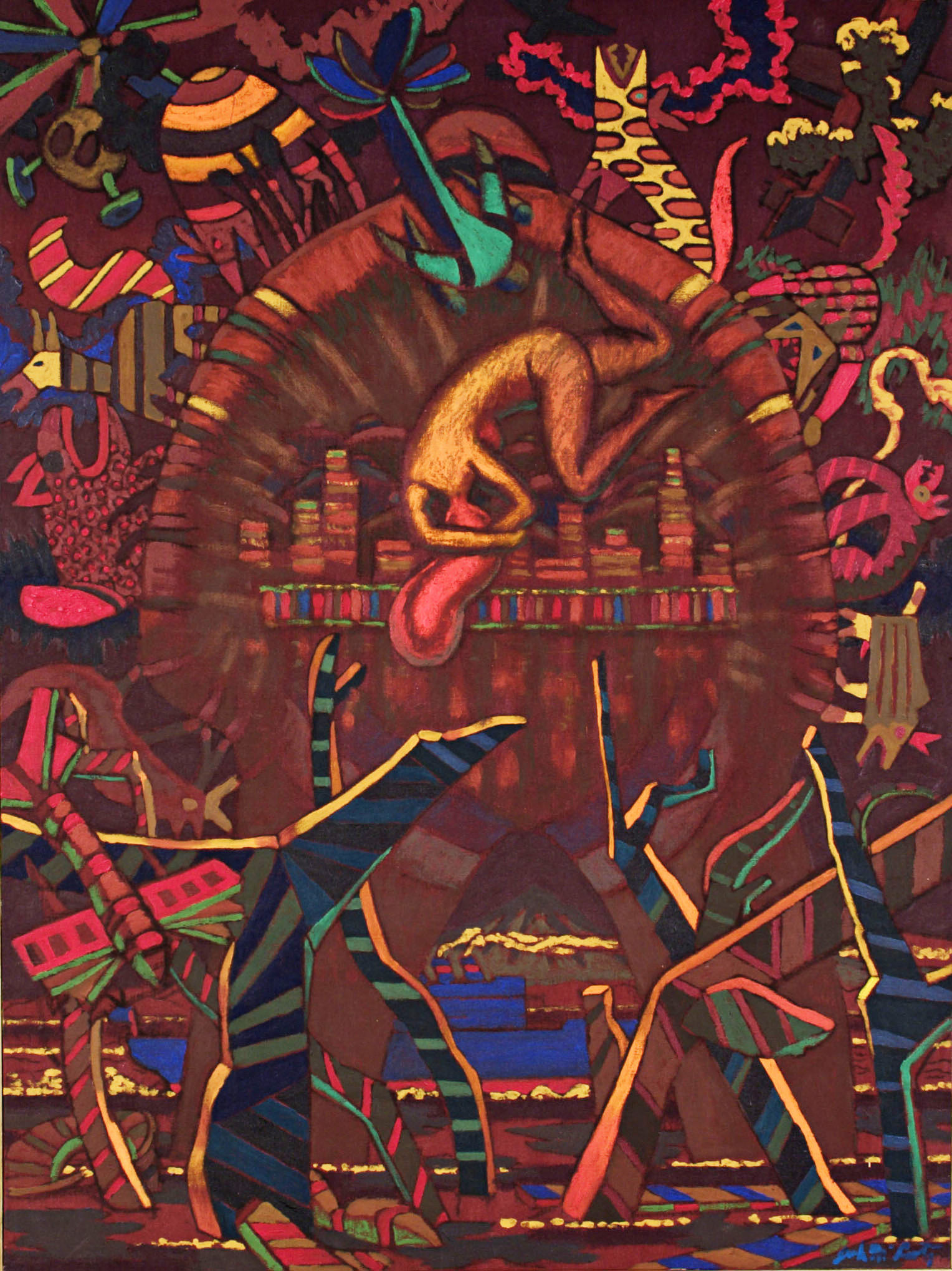Pacific Northwest College of Art (PNCA), founded in 1909 by the Portland Art Association as the Museum Art School, was originally part of the Education Department of the Portland Art Museum. Anna Belle Crocker, the first director of the museum, was also the first principal of the Museum Art School. From the beginning, many notable educators and artists taught at the school, including Harry Wentz, an early proponent of Oregon regionalism, who served as dean from 1910 through 1941.
The Museum Art School continued to grow a larger regional student body as influential faculty members helped position it as a progressive leader in the arts community, especially during the post-war period. Painter and printmaker William Givler served as dean until 1973. Douglas Lynch and Leta Kennedy established a program of study in commercial and graphic design. Painters Jack McLarty, Louis Bunce, Michele Russo, George Johanson, Harry Widman, sculptor Manuel Izquierdo, and potter Bennet Welsh also left important imprints on art teaching in the region. They brought influences from Abstract Expressionism, Modernism and native, Asian, and European traditions, while developing and reifying Oregon regionalism. Many renowned American artists were students of the school in the twentieth century, including Thelma Johnson, Lee Kelly, Duane Zaloudek, and Sally Cleveland.
PNCA later became an independent college of art and design, changing to its current name in the fall of 1981, and separating entirely from the Portland Art Museum in 1994. During this period, the school changed its approach of emphasizing a strong regional aesthetic toward a national and international vision, gradually developing as a stronger driving force in the visual arts. The years from 2005 to 2017 have been a time of significant growth at PNCA, as this broader vision of educational programming comes to fruition. In 2013, Arthouse, a new student housing facility opened and in 2015 the college moved into a new home at the Arlene and Harold Schnitzer Center for Art and Design in the North Park Blocks.
The college offers bachelor of fine arts programs in communication design, contemporary animated arts, general fine arts, illustration, intermedia, painting, printmaking, and sculpture. There are also graduate programs, including a mentor-based MFA in visual studies and an MFA in applied craft and design, a program developed in collaboration with the Oregon College of Art and Craft.
With the support of the Ford Institute for Visual Education, founded in 2007 with a gift of $15 million from Hallie Ford, PNCA established a partnership with the Museum of Contemporary Craft in 2009. The arrangement allows the two institutions to present a coordinated schedule of public exhibits, lectures, and visits by internationally recognized artists, academics, and designers.
The college receives regional accreditation through the Northwest Commission on Colleges and Universities and nationally through the National Association of Schools of Art and Design. Faculty members have included renowned artists, writers, and educators such as Rose Bond, Monica Drake-Alonso, MK Guth, Anne Johnson, Arnold Kemp, Paul Missal, Barry Sanders, and Morgan Walker.
-
![Arlene and Harold Schnitzer Center for Art and Design]()
Pacific Northwest College of Art.
Arlene and Harold Schnitzer Center for Art and Design Courtesy Pacific Northwest College of Art
-
![Library]()
Pacific Northwest College of Art.
Library Courtesy Pacific Northwest College of Art
-
![Atrium]()
Pacific Northwest College of Art.
Atrium Courtesy Pacific Northwest College of Art
-
![Commons]()
Pacific Northwest College of Art.
Commons Courtesy Pacific Northwest College of Art
Related Entries
-
![Anna Belle Crocker (1867–1961)]()
Anna Belle Crocker (1867–1961)
Anna Belle Crocker was curator of the Portland Art Association’s museum…
-
George Johanson (1928-2022)
George Johanson was a Portland painter and printmaker known for his ima…
-
![Harry Widman (1929-2014)]()
Harry Widman (1929-2014)
Portland painter, teacher, administrator, and arts advocate Harry Widma…
-
![Louis Bunce (1907-1983)]()
Louis Bunce (1907-1983)
Louis Bunce, a major painter and printmaker beginning in the 1930s, is …
-
![Manuel Izquierdo (1925 - 2009)]()
Manuel Izquierdo (1925 - 2009)
Manuel Izquierdo, who arrived in Portland in 1942 as a teenaged refugee…
-
![Portland Art Association]()
Portland Art Association
The Portland Art Association (PAA) was organized on December 12, 1892, …
-
![Portland Art Museum]()
Portland Art Museum
The Portland Art Museum, which opened in 1895 in the city library with …
-
![Portland Art Museum School]()
Portland Art Museum School
In October 1909, the Portland Art Association (PAA) opened its school, …
-
![Thelma Johnson Streat (1912-1959)]()
Thelma Johnson Streat (1912-1959)
Thelma Johnson Streat was a multi-talented African American artist who …
-
![William Givler (1908-2000)]()
William Givler (1908-2000)
William Givler was an artist and educator who joined the faculty of the…
-
![William James (Jack) McLarty (1919-2011)]()
William James (Jack) McLarty (1919-2011)
William James “Jack” McLarty, one of Oregon’s veteran modern painters, …
Map This on the Oregon History WayFinder
The Oregon History Wayfinder is an interactive map that identifies significant places, people, and events in Oregon history.
Further Reading
Pacific Northwest College of Art. http://www.pnca.edu/.





